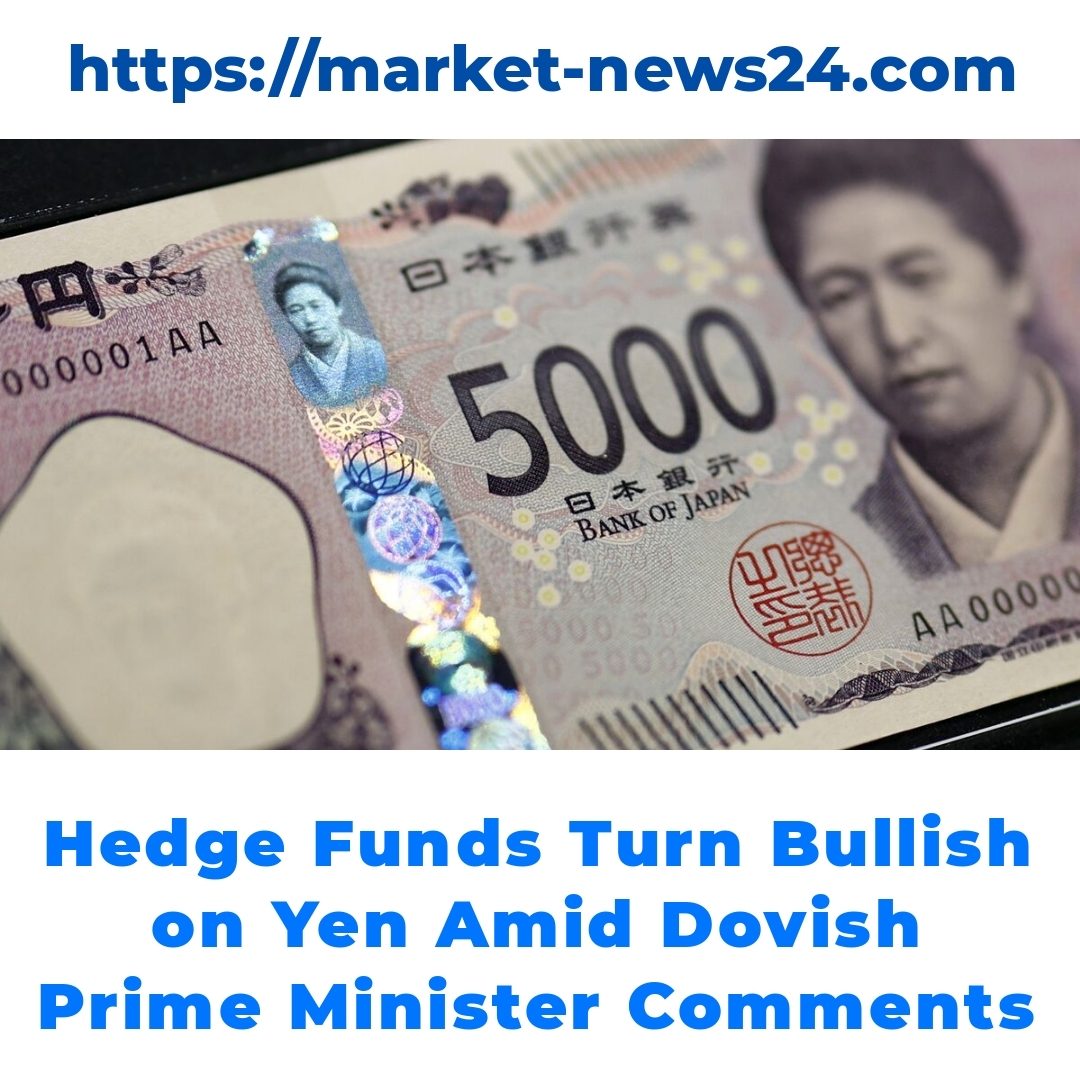Hedge funds play a crucial role in currency trading, and their recent bullish positioning on the yen reflects shifting market dynamics. This article will delve into the recent trends affecting Japan’s currency, particularly in light of political events and critical economic indicators that have prompted significant market movements.

Hedge Funds’ Bullish Stance on the Yen
Hedge funds have recently adopted an optimistic view towards the Japanese yen, indicating a significant shift in their trading strategies. This bullish stance stems from several factors, including expectations regarding Japan’s economic recovery and central bank policies.
One key contributor to this optimism is the market sentiment that arose leading up to the remarks of Japan’s new prime minister. Traders were anticipating a change in monetary policy that could favor the yen, prompting hedge funds to position themselves accordingly. In this context, “bullish on the yen” means that these funds expect the value of the yen to rise against other currencies, which could potentially translate into profits for those holding yen-based investments.
The Impact of Japan’s New Prime Minister’s Dovish Comments
Recently, Japan’s new prime minister made comments that were described as “dovish.” In the financial world, dovish remarks typically suggest a preference for lower interest rates and caution against tightening monetary policy. This can be significant because it can affect investor confidence in the currency.
The new prime minister’s strategy appears to indicate a continued commitment to accommodative monetary policies. As these comments sank into the market, perceptions began to shift. Investors who once felt optimistic were suddenly filled with uncertainty, portraying a potential bearish outlook on the yen. Hedge funds had to reassess their strategies in light of these developments, adjusting their positions to either mitigate risk or capitalize on the volatility.
The Role of Robust US Jobs Report
Another crucial factor influencing Japan’s currency fluctuations is the robust US jobs report released recently. For those unfamiliar, the jobs report is a key economic indicator in the forex market, providing insights into the health of the US economy. When this report shows strong job growth, it typically strengthens the US dollar, impacting other currencies like the yen.
In the wake of the jobs report, we saw immediate reactions within currency pairs. The yen faced downward pressure as investors shifted their focus toward the stronger dollar. This correlation between US economic indicators and fluctuations in Japan’s currency highlights the interconnectedness of global markets. Following the report, hedge funds were seen recalibrating their strategies concerning the Japanese yen, often leading to increased trading activity and volatility.
Worst Week for the Yen Since Late 2009
The combination of these factors led to one of the worst weeks for the yen since late 2009, creating alarm within financial markets. During this period, the yen experienced significant depreciation against major currencies, raising questions about the long-term stability of Japan’s currency.
Historically, this week is noteworthy because it reflects a larger trend in currency trading and economic signals. Traders began to observe patterns and potential outcomes that could impact their future investments. The scale of the yen’s decline suggested not just short-term volatility but also long-term implications for hedge funds and individual investors.
Looking ahead, we may see continued fluctuations in the yen as various external factors, including US economic policies and Japan’s financial strategies, shape market perceptions. Analysts have begun to predict potential trends moving forward based on the events of February 2023.
Conclusion
In summary, the recent bullish stance of hedge funds on the yen reflects a complex interplay of market dynamics. As we explored, economic indicators such as Japan’s new prime minister’s dovish stance and the robust US jobs report have had a pronounced effect. These developments, particularly in light of the yen’s recent performance, underscore the importance of staying informed about market trends and hedging strategies.
For investors looking to navigate this landscape, understanding the nuances of Japan’s currency fluctuations will be paramount. Keeping a close eye on political changes and economic reports will be vital for making informed trading decisions in the future.
Frequently Asked Questions
What does it mean for hedge funds to be bullish on the yen?
When hedge funds are described as being “bullish on the yen,” it means they expect the value of the yen to rise against other currencies. This optimism is often based on predictions about Japan’s economic recovery and changes in monetary policy.
How did the comments from Japan’s new prime minister affect the yen?
The new prime minister’s dovish comments suggested a preference for maintaining low interest rates. This caused uncertainty among investors, leading to a shift in market sentiment that created potential bearish outlooks for the yen.
What impact did the US jobs report have on the Japanese yen?
A strong US jobs report generally strengthens the US dollar, which can lead to downward pressure on the yen. Following the report, hedge funds adjusted their strategies in response to the increased focus on the stronger dollar.
Why was the yen’s performance significant during the recent market fluctuations?
The yen experienced one of its worst weeks since late 2009, indicating severe depreciation against major currencies. This situation raised concerns about the long-term stability of Japan’s currency and led traders to analyze potential patterns for future investments.
What should investors focus on regarding the yen’s future?
Investors should monitor key factors such as:
- Political changes in Japan
- Economic indicators, especially from the US
- Monetary policy adjustments
Staying informed about these aspects will help investors make more informed trading decisions moving forward.






